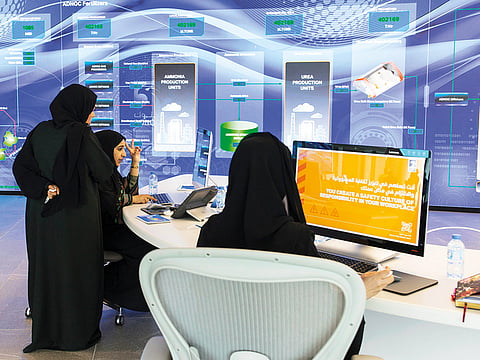Here are the top four things UAE executives will watch out for in 2019
Energy price changes, terrorism, and fiscal issues all feature

Dubai: Despite the many reasons that cause business executives across the Middle East to lie awake at night, from the price of oil to terrorist attacks, one concern above all has been growing in recent years.
Cyber attacks
The risk of cyber attacks now sits atop the list of threats that top executives in the UAE fear, according to the World Economic Forum (WEF) and Marsh, the US insurance broker, in their annual survey of global business leaders.
With the growth of the country’s focus on smart cities and new technologies, including 5G, the surface for attacks has greatly broadened.
“We’ve seen a series of small and big cyberattacks in the UAE... that have caused a lot of concern and many companies are now starting to take measures, which before they were not,” said Christos Adamantiadis, CEO of Marsh in the Middle East and Africa.
Data fraud or theft
The UAE was hit by 2.4 million ransomware attacks in the first quarter of 2018 alone, according to security firm Trend Micro.
“This year the number of cyberattacks has risen considerably,” Adamantiadis said, adding: “Both the number and the sophistication are on the rise.”
According to the report, the UAE differs from other countries in the Middle East and North Africa region — respondents focused on technology-related risks in a very similar way to their counterparts in Europe and North America, with cyberattacks ranked first, misuse of technology in third place and data fraud in fourth.
Adamantiadis said that this year would likely see more crippling cyberattacks, with companies increasingly aware of the risks associated with such threats, and as a result more active in their defence.
Conventional warfare
Terror attacks
Terror attacks were the fourth most cited risk for UAE respondents to the survey, reflecting what Adamantiadis called a “proxy for geopolitical risk.”
Given the UAE’s virtual absence of terrorism, the Marsh chief executive said he felt executives were expressing broader concerns about regional conflict and geopolitical fissures, as opposed to a fear of actual attacks.
Nevertheless, Adamantiadis said that with the UAE’s reputation for being “a safe haven... any major terrorist attack here could destroy that impression.”
Despite weak economic indicators in 2018, businesses in the UAE did not list fiscal issues as a particularly great concern.
Globally, however, fiscal crises ranked fourth in the top risks for businesses.
“With oil prices rising, and the real estate market going through a very soft patch... we’ll see fiscal crisis rise as a concern in the UAE,” Adamantiadis said. “There is a realisation among our clients that things are changing... fiscal crises and asset bubbles are a growing concern.”
The view is that 2019 is going to be a difficult year from a fiscal perspective and a market growth perspective, he added, “in the region as a whole, and in the UAE.”
Energy price shock
An energy price shock, meanwhile, does rank highly among the concerns of UAE businesses, according to the survey.
A drop down to the $50 (Dh183) a barrel range would constitute a price shock.
This is where “national budgets become unsustainable,” Adamantiadis said. “The UAE is a bit more shielded than some of the over economies in the region... obviously there is contagion.”
“But Dubai has led the way in diversification.”
More broadly, an energy price shock constitutes the number one concern for businesses across the Middle East and North Africa.
In second place across the region is unemployment or underemployment.
Terrorism, the failure of regional or global governance, and fiscal crises round out the rest of the top five.
Globally, unemployment and the failure of national governance are the primary concerns for businesses, according to the survey.



